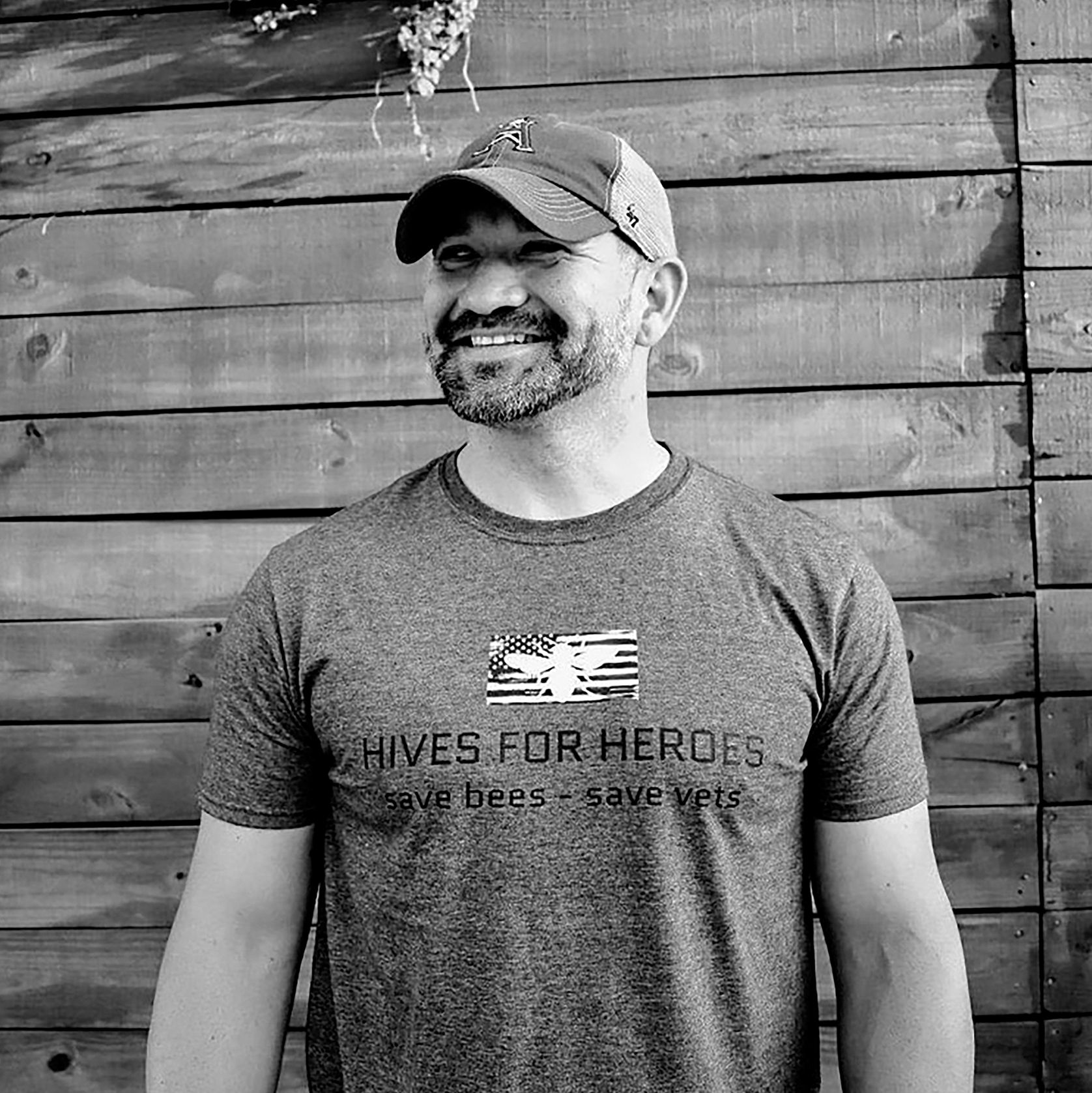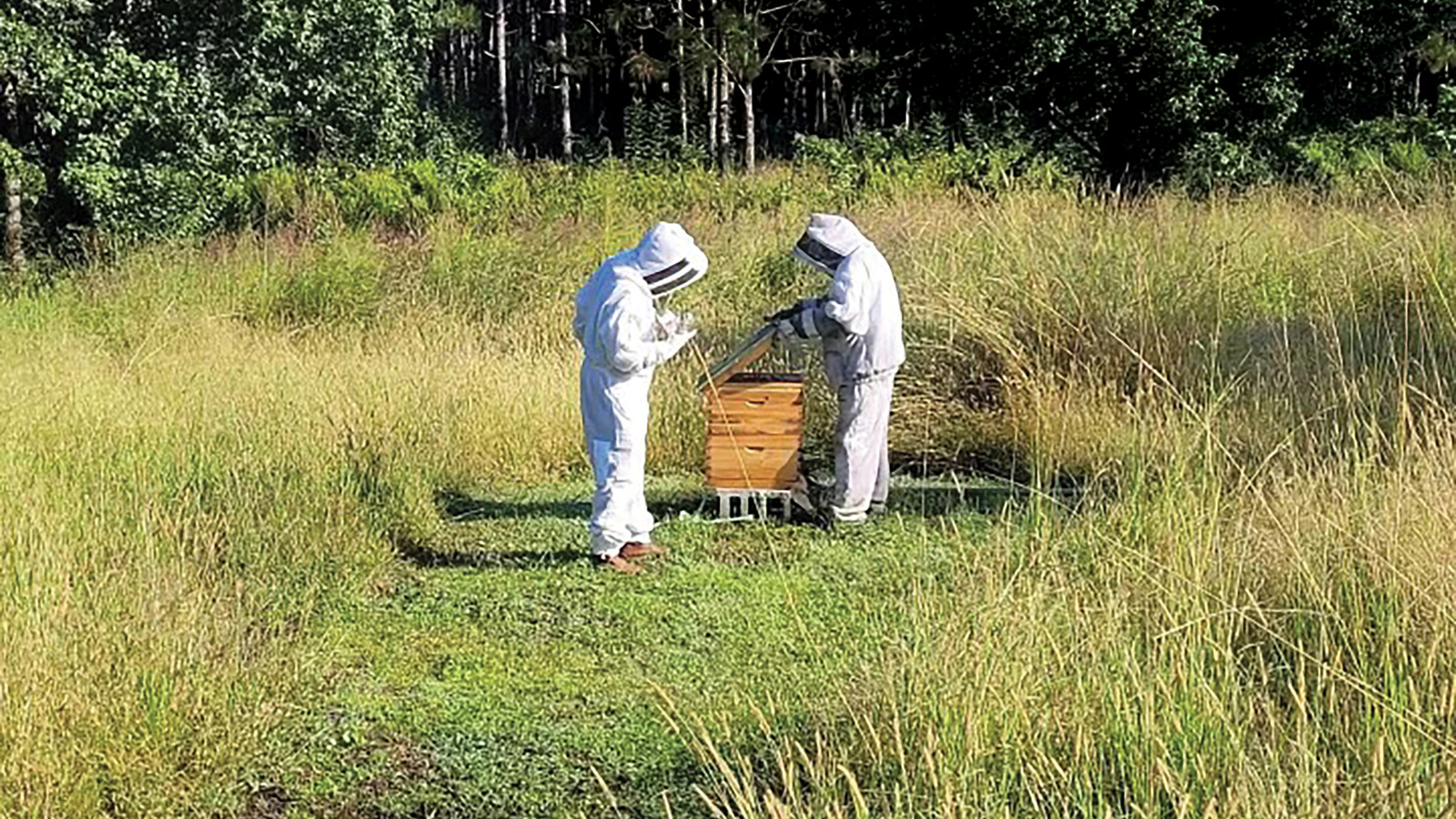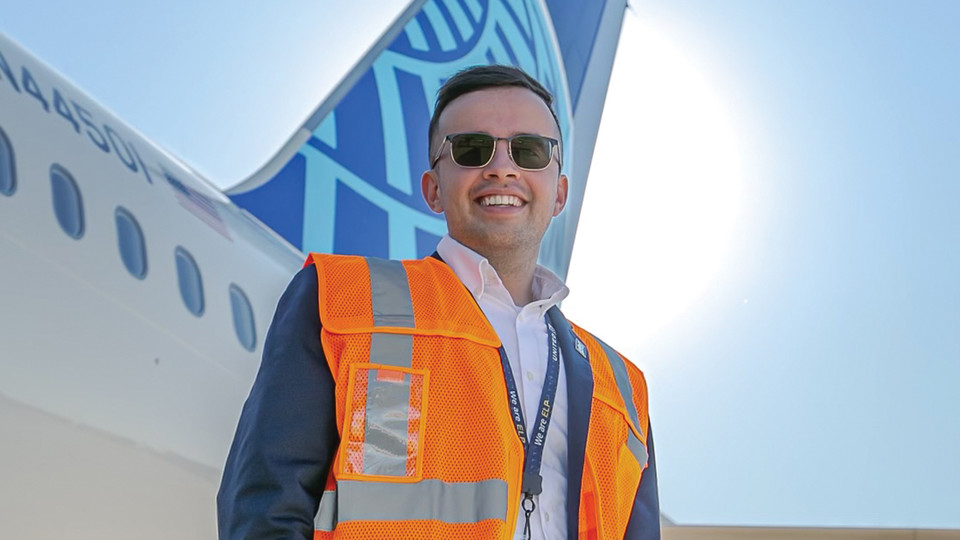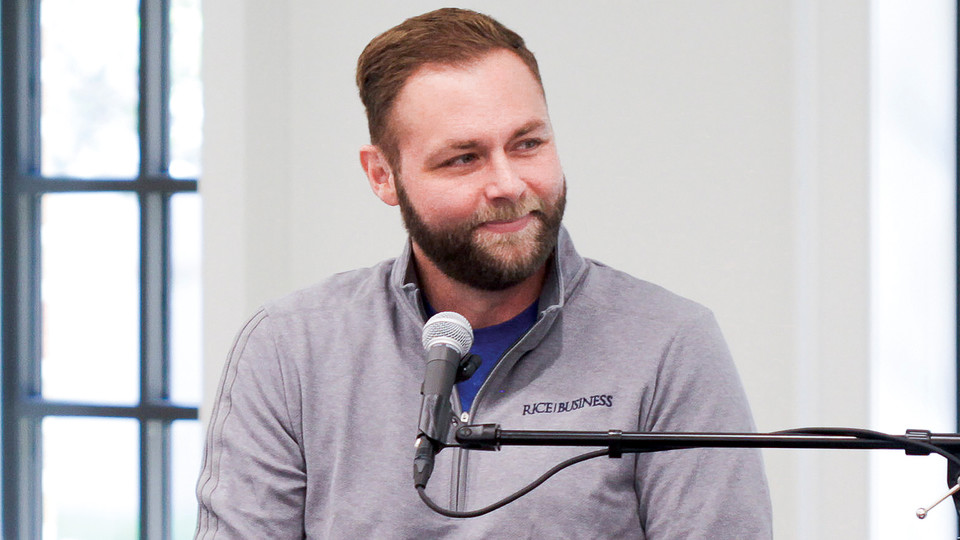
From Chaos to Calm

How Steve Jimenez ’22 is supporting U.S. veterans and first-responders through beekeeping
The sun lay low on the horizon as the hive opened and a cloud of honeybees filled the air around him. Steve Jimenez took a slow step forward, peering anxiously through the veil of his full-body suit. He didn’t know much about beekeeping, but he had agreed to the adventure when his friend, a fellow veteran, invited him along. The steady hum of the bees offered an unexpected sense of calm, and the cladding of the suit began to feel familiar. As each hive was opened, his unease faded — after all, this wasn’t his first venture into the unknown.
Just over a decade earlier, Jimenez was a junior at Texas A&M University studying engineering. But after learning this path would require an extra year in school, he switched to sociology. A few weeks after graduating, the 22-year-old enlisted in the U.S. Marine Corps, driven by the events of 9/11, encouragement from his high school pals and a natural inclination to lead others.
Jimenez made his way through rigorous training — including 10 weeks of Officer Candidates School, six months of The Basic School and six months in Basic Communications Officer School — and then on to Miramar, San Diego, where he was stationed. Over the next eight months, his deployment took him across 17 countries, where he engaged in kinetic operations, humanitarian aid and piracy operations.
When his service ended in 2011, he returned to civilian life, only to find it lacked the structure, purpose and camaraderie he had grown accustomed to during his time in the Marine Corps. Though he began a successful career in manufacturing operations as a Lean Six Sigma Black Belt, he continued to search for something more fulfilling.
At that first beekeeping event in 2018, Jimenez admired the little insects and their dedication to order, teamwork and the greater good — values he had lived by as a U.S. Marine but had struggled to rediscover since his return from service. For so many veterans, the transition to civilian life is clouded by addiction, depression and self-harm. His own transition was not easy. But from his first interaction with the honeybees, Jimenez felt a strong sense of purpose and stability. “When I focused on the beehive, all of my external concerns dissolved,” he says. Referring to this feeling as “chaos to calmness,” Jimenez shares that the adrenaline rush of working with bees offered a profound sense of peace — one that he hadn’t felt in years.
That first experience was the start of a mutual relationship with bees that would grow to benefit thousands. Eager to share the same sense of solace in nature, Jimenez founded Hives for Heroes. Since 2018, the nonprofit has supported more than 150,000 hives across the United States and built a nationwide network of participants — including active-duty members, veterans, first responders and civilians from all walks of life. Once new members apply online, the “NewBEEs” receive instant access to education, community and resources designed for their success. If available geographically, they are paired with a nearby mentor to guide them in the art and science of caring for beehives year-round.

Mentors of both military and civilian backgrounds are welcome, Jimenez emphasizes, and should show three years of successful beekeeping experience through all seasons. NewBEEs and mentors meet regularly to ensure that the bees are working, the colony is thriving and the queen is safe. Yet the priority continues to be connection, community and encouragement. After harvesting the honey, Hives for Heroes volunteers can choose to sell their own goods — ranging from local honey to beeswax candles — as their own business or pay it forward by giving back to the “hive.”
Best of all, Hives for Heroes is accessible to Heroes in every state, with designated leaders across the country. Fostering relationships is central to the organization’s mission, which is grounded in four core values: connection, purpose, relationships and service. Regardless which branch of the military they served in, all veterans made the same commitment and sacrifice, says Jimenez, which is why Hives for Heroes prioritizes opening doors, offering resources and giving back.
“What helped me adjust to civilian life was allowing amazing people, who had experienced this before, to share their successes with me through mentorship,” Jimenez says. “Now, that is our goal for Hives for Heroes.” The investment of time, talent, knowledge and resources can be life changing.
For Jimenez, beekeeping became both a personal refuge and a way to continue serving others. “There is a lot of healing in bees, but there’s also a lot of healing in connecting with others,” he says. Hives for Heroes strives to share that remedy with as many Heroes as possible, and all are welcomed. Jimenez also reflects fondly on his opportunity to study sociology in college, which deepened his understanding of relationships and helped him lead thousands of volunteers within the organization.
In its mission to unite veterans with nature through mentorship, Hives for Heroes isn’t just saving bees — it’s saving lives. “This is an opportunity to connect again,” says Jimenez. “If we can serve one person in a capacity that changes their life, then Hives for Heroes has accomplished its mission.”
To learn more about Hives for Heroes, sponsor their mission or get involved in your region, visit hivesforheroes.org.
Want more on Jimenez’s mission and Hives for Heroes? Hear his full story on the podcast: business.rice.edu/jimenez.


